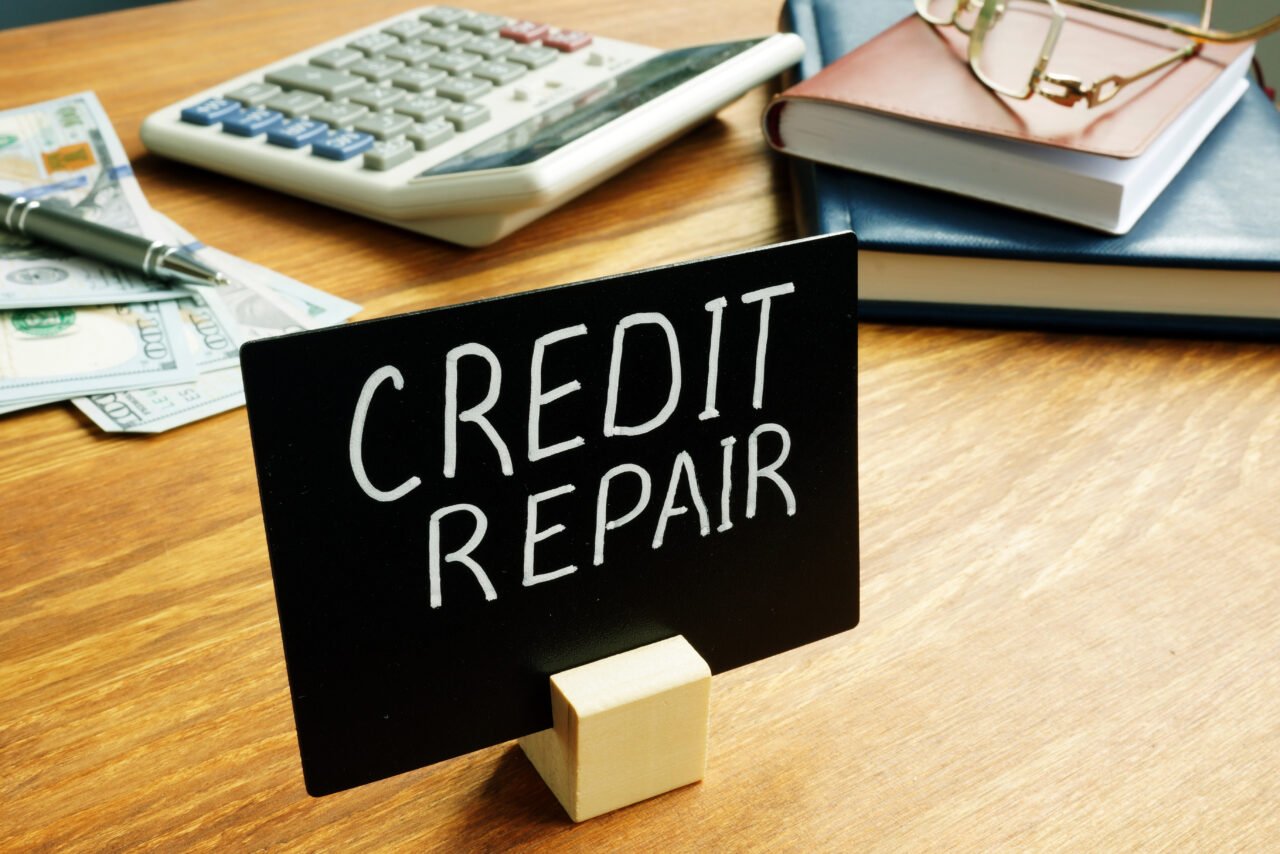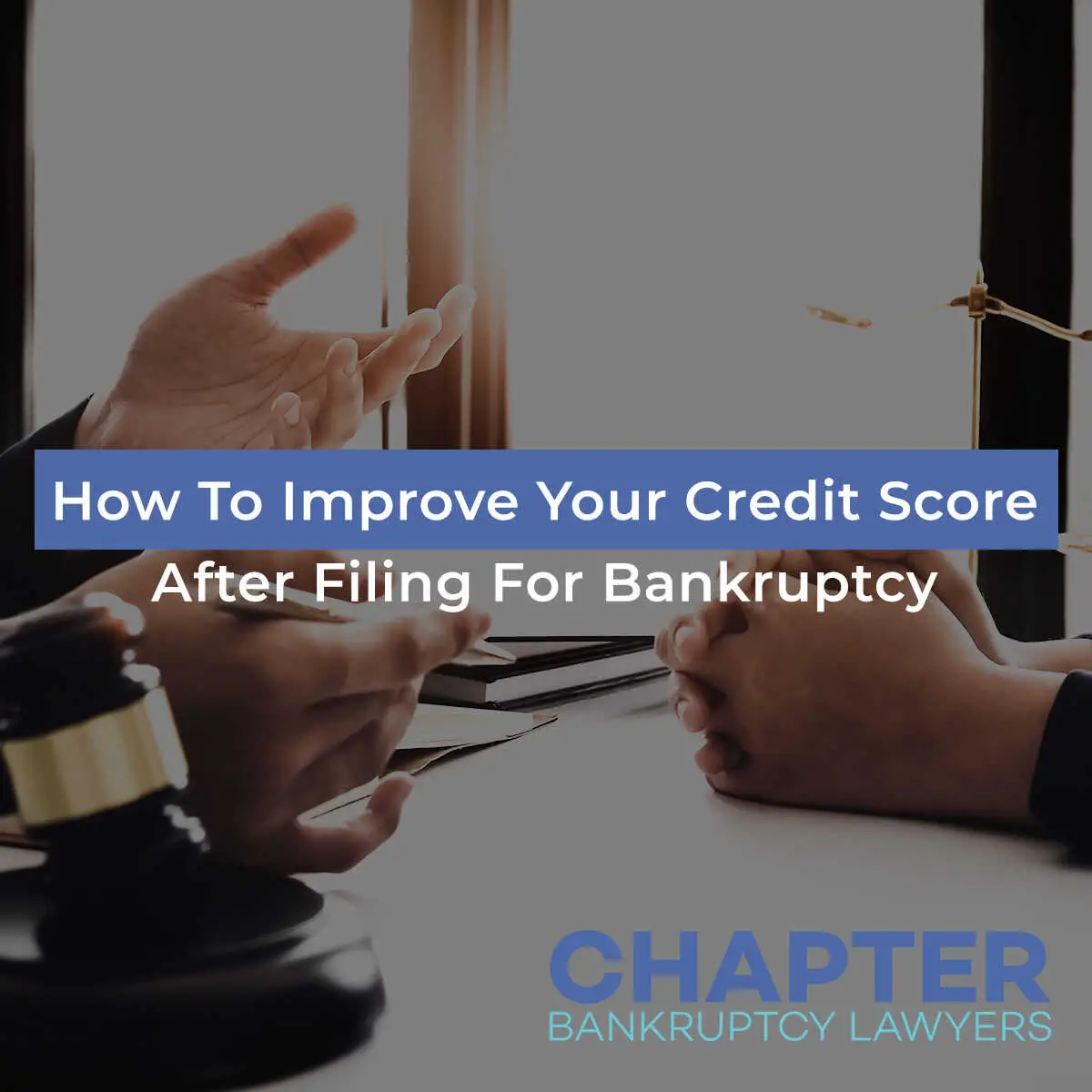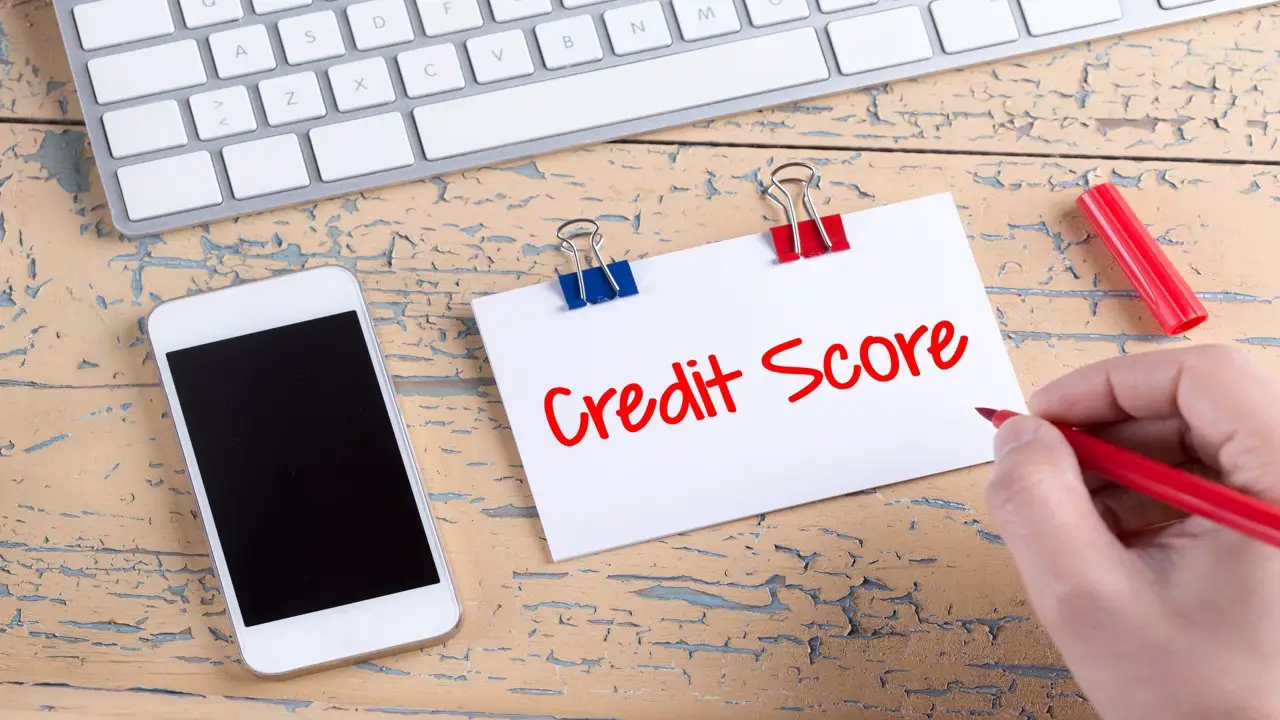S To Rebuilding Credit After Bankruptcy
You might think youre a pariah in the eyes of lenders and credit card issuers, but thats not quite true. Youll have to prove yourself, of course, but it can be done.
Although your goal building a good credit score is the s ame as that of someone starting from scratch, your situation is different. Your problem isnt that creditors dont know anything about you, but rather that they know a lot. Here’s how to start rebuilding your credit after bankruptcy:
Become An Authorized User On Someone Elses Card
If you have a relative or friend who has really good credit and allows you to become an authorized user on their credit card, it will help your significantly.
Being an authorized user means you have all the benefits of using that credit card, but none of the responsibilities for paying it off every month. That would be the cardholders responsibility and as long as he/she makes on-time payments, you ensure positive reporting.
On the other hand, if the cardholder is late with a payment or doesnt make one at all, the negative reporting will show up on your credit report.
Best advice for using this method is to choose wisely. Make sure the cardholder is a reliable, responsible person. And if you use the credit card for any purchases, make sure you settle up with the cardholder at the end of every month.
Do Your Best To Keep Your Number Of Former Employers As Low As Possible
Quitting a job or starting a new one wont have any direct impact on your credit score. However, your job history will be one of the factors that lenders consider when deciding whether to extend you a new line of credit after bankruptcy. Remaining with one employer increases the likelihood that the lender will extend you a favorable line of credit, which will help your credit score in the long run. Lenders generally look into the past two years of your job history.
Recommended Reading: How To File Bankruptcy Yourself In Va
Develop Good Credit Habits
You may be surprised to know that the key to rebuilding your credit is to develop good credit habits. Even the smallest habits will make a noticeable difference in your credit score.
A good tip is to make all debt payments on time. Your payment history will be reflected in your credit score, so it is vital that you make loan payments on time. It will also help you if you can make full payments instead of minimum payments. Not only will this save you money on interests, but it will also speed up the credit repair process.
Another tip is to save for emergencies. Many peoples finances are thrown off balance when they have an unexpected expense. Accidents rarely occur when we expect them, so its important to set some funds aside to account for unforeseen car or house trouble, medical expenses, etc.
Track Your Credit Score

Its not going to be fun, but sign up to Experian so you can see your credit score. Check back every month and see if your credit score has improved and try to be realistic about what credit you might get. If you apply for credit and get refused, wait for a while and try again once your score is better.
You May Like: Renting An Apartment After Bankruptcy
What Happens To Your Credit After Bankruptcy
A bankruptcy will be recorded in your credit reports public records section and will stay on your report for seven to 10 years, depending on the type of bankruptcy you file. Once bankruptcy is completed, the record should show that both the bankruptcy and the included accounts are discharged.
One of the most damaging things about bankruptcy is its impact on your . Once your bankruptcy is filed and reported, your score will take a dive, though there is no set formula for how much it will drop. The higher your score was when the process started, however, the greater a drop you can anticipate.
How long your bankruptcy will stay on your credit report depends on whether youve filed a Chapter 7 or Chapter 13 bankruptcy. Chapter 7, also called a liquidation bankruptcy, involves selling off your assets to pay off creditors. Chapter 13, also known as a reorganization, focuses on restructuring debt to manageable levels instead of discharging it via asset forfeiture. A Chapter 7 bankruptcy will stay on your report for 10 years. A Chapter 13 will be deleted after seven years, though it takes longer to complete the Chapter 13 process.
How Much Will Bankruptcy Affect Your Credit Score
In 2010, FICO released a report that showed examples for the average credit score after bankruptcy. The decrease when you started with a high score is more significant.
| Starting Credit Score | |
|---|---|
| 150 | 530 |
In both cases, you end up with a bad credit score. But the decrease from fair to bad is less than from excellent to bad. Essentially, you have more to lose when you have good or excellent credit. If you already have bad credit then the point-damage may not be that bad. Remember, FICO scores only go down to 300, but its rare to see anything below 500.
Don’t Miss: Bankruptcy And Apartment Rental
A Bankruptcy Filing Lays The Foundation For Good Credit
When you file bankruptcy, the bankruptcy itself is a negative remark on your credit report, but it stops all sorts of negative reporting from going on your credit report. Normally, when a loan isnt paid on time every month that loan gives you a negative remark for late payment or for collections. That is a negative remark EVERY SINGLE MONTH.
After bankruptcy, it is illegal to attempt to collect debts. That means its illegal to write negative things on credit reports. Thus, after bankruptcy there will be no new negative remarks on the credit report. The late payments from before the bankruptcy filing day will continue to show as late, because they were from before the filing date of the bankruptcy.
After the filing day, it will look like nothing is going on with your loans at all. They should all be showing as $0 balance discharged in bankruptcy.
How Long To Get To 700
How long does it take to have a 700 credit score after you file? After reaching 600, one to two years after bankruptcy, if you continue to practice good credit habits, your credit score will continue to gradually improve. By continuing to pay all of your bills on time, and properly establishing new credit, you can often attain a 700 credit score after bankruptcy within about 4-5 years after your case is filed and you receive a discharge.
Also Check: Filing Bankruptcy In Tx
How To Improve Your Credit Scores After Chapter 7 Bankruptcy
Do you wonder how to improve your credit scores after Chapter 7 bankruptcy? You should understand how a Chapter 7 bankruptcy works. After that, youll see that this kind of bankruptcy wont kill your chances of earning high credit scores at all. With some prudent and frugal moves, you can get back on track towards enjoying high credit scores and better finances.
Seek A Credit Product For Your Situation
Your pre-bankruptcy payment history will make you look like an extremely risky borrower to lenders. You can fix that problem by providing extra assurances that they wont lose money by lending to you.
Here are some credit products designed to do that as well as other ways to improve your financial profile:
Get a secured loan or credit-builder loan: This comes in two varieties, and most often is offered by credit unions or community banks. One kind of secured loan involves borrowing against money you already have on deposit. You wont be able to access that money while youre paying off your loan. The other kind can be made without cash upfront, though the money loaned to you is placed in a savings account and released to you only after you have made the necessary payments. In return, the financial institution agrees to send a report about your payment history to the credit bureaus.
Get a secured credit card: This kind of card is backed by a deposit you pay, and the credit limit typically is the amount you have on deposit. A secured card often has annual fees and may carry high interest rates, but you shouldnt need it for the long term. It can be used to mend your credit until you become eligible for a better, unsecured card.
This route wont lift a score by nearly as much as the other methods, because authorized users dont have ultimate responsibility for repaying debt. But this path wont hurt, so you may want to pursue it.
You May Like: How Much Does A Bankruptcy Lawyer Cost In Nj
How To Rebuild Your Credit After Bankruptcy
You have just received your bankruptcy discharge, and you may be wondering to yourself, now what? How do I go about rebuilding my credit? What steps can I take to improve my credit score? When I researched this topic online virtually all the articles that I read basically emphasized the same thing: Do not incur more debt, pay all your bills on time, and obtain a secured credit card and pay it off in full each month. In fact, here is a good article on this topic Life After Bankruptcy: 5 steps to Rebuilding your Credit, Finances and Emotions, written by Lynnette Khalfani.
There is however one key piece of advice that most news outlets seems to glance over and that is the need to ensure that your credit report is properly reporting your bankruptcy discharge.
All the debt that existed on your credit report on the day you filed your case now must be reported by the credit bureaus as discharged/included in bankruptcy AND must show a zero balance.
So forget all the fancy advice out there and start with the basic stuff. Order your credit report and make sure the bankruptcy is properly being reported.
Tempe Bankruptcy Attorneys Explain How To Build Credit After Filing For Bankruptcy In Arizona

One of our clients main concerns while making the decision on filing bankruptcy is what bankruptcy will do to their . The immediate effect bankruptcy has on your credit largely depends on the state of your credit when your bankruptcy is filed. What happens to your credit after your bankruptcy is discharged, on the other hand, is more within your control.
Recommended Reading: Epiq Bankruptcy Solutions
What Does It Mean To Rebuild Your Credit
Before we begin, lets make sure you are aware of what it really means to rebuild your credit. This process entails more than just obtaining a credit card or paying a car loan on time. The fact is that different agencies will judge you based on a variety of elements, and they are all different.
Before we begin, we will show you an example or two of how your credit is looked at. Even credit card rules have changed in the past ten years, and most people are unaware. This next section is the most important because you dont want to start a new credit rebuilding scheme and then find out you have been doing it all wrong.
Be Cautious About Job
As lenders often factor in your job history when approving a loan, holding down a stable job and having consistent income can boost your chances of getting a loan. Thats because stable employment can make lenders look more favorably on your ability to pay your loans.
While switching jobs might be okay, having gaps in income might make you seem more like a risk to lenders.
Why this matters: When youre trying to land financing after bankruptcy, because your credit is shaky, youll want to make sure as many financial ducks are in a row as possible. Having consistent income and not job-hopping too much can help you look more favorable to lenders.
How to get started: When researching lenders, see if employment history plays a part in the decision-making process. If youre self-employed or side hustle, be prepared to provide additional income verification. The more documentation you can provide that shows your income is consistent, and better.
Recommended Reading: How Many Times Did Donald Trump Filed For Bankruptcy
Ask For Payments To Be Reported To The Consumer Credit Bureaus
If youre making on-time rent payments every month, why not let them boost your credit?
Ask your landlord to report your monthly payments to the three major consumer credit bureaus Equifax, Experian and TransUnion or let companies like RentTrack help take care of it for you.
But theres a caveat: Even if the information makes it onto your credit reports, not every credit scoring model actually uses that information. Certain credit-scoring models, like FICO® 9 and VantageScore® scores based on your Experian credit report, use available rental-payment information when calculating scores, and FICO® Score XD even uses reported cellphone and utility payments.
Unfortunately, you cant control which scoring model a lender uses to check your credit but you could ask about this before you apply for a new line of credit.
Beware Credit Card Fees Use New Credit Wisely
After bankruptcy, some companies attempt to charge stunningly high fees for secured cards, sometimes as high as $200 for a $500 card. Talk about adding insult to injury.
However, you have choices. Shop for a low- or zero-fee card, study the fine print, and make the choice best for you. Be on the lookout for interest rates on balances carried over.
Also, make certain your new card company reports to all three credit monitoring agencies. Some dont, and youll want the world to see how exceptionally well post-bankruptcy you is performing.
Once youve secured a secured credit card, you will demonstrate that excellent performance by using the card prudently, never going above 30% of the balance limit, and paying off the balance each month.
When you are comfortable paying off the secured credit card, you might be ready to try for an unsecured card. Once again, anticipate rejection, high fees, or punishing interest rates.
However, given sufficient time and diligence using your secured card balances kept low and paid off each month you should be able to obtain a regular, unsecured credit card one even with rewards or cash back.
But the rules do not change: When you do get an unsecured credit card, keep the balances low and paid off on time monthly.
Don’t Miss: How To File Bankruptcy For Free In Ohio
Top 4 Ways To Build Credit After Bankruptcy
Most of our clients see a 720 credit score only 2 years after bankruptcy. Just follow these any combination of these 4 easy steps to improve your credit score after bankruptcy. Bankruptcy is a legal process that makes debt go away, and credit score measures how regular payments towards debts have been. Often, in the time before bankruptcy, people are not paying their loans on time so they already have a bad credit score, and the bankruptcy filing stops the score from getting worse.
Can I Apply For Credit
After your bankruptcy has ended, there is no restriction on applying for loans or credit. Its up to the credit provider to decide if they will lend you money.
Your credit reportwill continue to show your bankruptcy for either:
- 2 years from when your bankruptcy ends or
- 5 years from the date you became bankrupt .
It can take time to rebuild your credit rating.
For more information regarding your credit report, contact a credit reporting agency. Information about credit reporting agencies is available at ASICâs MoneySmart.
Recommended Reading: What Is Epiq
Read Also: How Many Times Has Trump Filed Bankrupt
How To Build Credit After A Bankruptcy
Through April 20, 2022, Experian, TransUnion and Equifax will offer all U.S. consumers free weekly credit reports through AnnualCreditReport.com to help you protect your financial health during the sudden and unprecedented hardship caused by COVID-19.
In this article:
Bankruptcy is a difficult legal process that can have a severe, negative impact on your credit. But the good news is, no matter how much damage is done to your credit, it won’t last forever.
Bankruptcy stays on your credit report for seven or 10 years, but its impact lessens as time passes. In the meantime, you can start improving your credit right away by taking some proactive steps.
Can Bankruptcy Ever Help Improve A Credit Score

Bankruptcy won’t provide immediate improvement to your credit scores, but it can be the quickest way to better credit for many people. Here’s why: If you’re already behind on debt payments or have accounts in collection, bankruptcy can help get you back on your feet sooner than other types of debt management programs. That’s because bankruptcy gets rid of many types of debts and provides you with a fresh financial start. When you reduce your debt load and get your finances under control, you can start making loan and credit payments on time, reduce your debt-to-income ratio, and take other steps to rebuild your credit.
But if you don’t file for bankruptcy and continue to limp alongmaking late payments, defaulting on debts, and increasing the amount of debt you have compared to your incomeyou’ll never be able to improve your credit.
Keep in mind, though, you probably have other options for getting a handle on your debt other than bankruptcy. Check out all the alternatives to see what option is best for you. When in doubt, consult with an attorney.
Also Check: How Long After Bankruptcy Can I Rent An Apartment